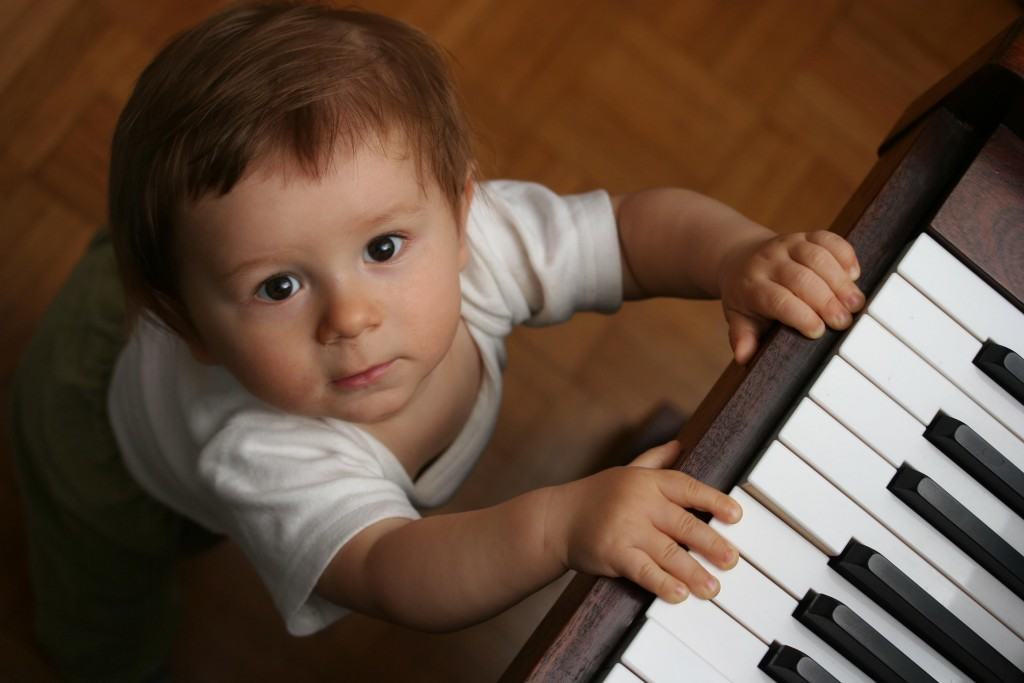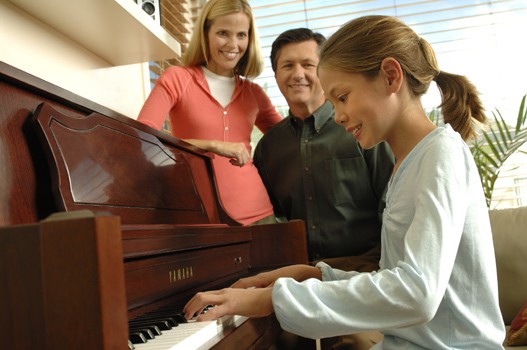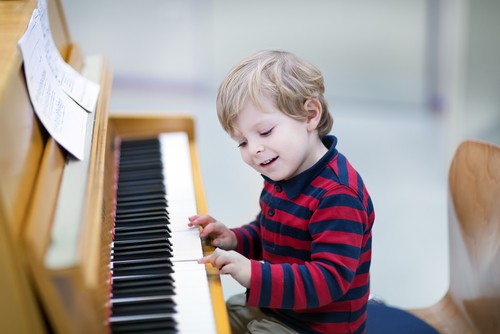Maria Augusta von Trapp defined music as a magic key, to which the most tightly closed heart opens. Music is an art and it is to be treated like that and not otherwise, like a competition. A good number of parents, without any musical background, get their kids admitted to a music school or simply a class, where their kids may or may not be taught with the best of interests.

In such a case, parents have a tendency of making some of the gravest mistakes that need to be avoided when their children begin learning to play an instrument. Learning any instrument calls for proper and complete understanding of the basic concepts. The same goes for piano education. Avoiding making certain mistakes while your children are learning to play piano will help them learn better.
Buy a Piano before Starting the Lessons
Buying a piano before starting the education is important if you are serious about your child’s music education. If you consider buying a piano after the kid has begun with the lessons, it will merely cause a delay in the practice and create a break between the lessons and practice, which will cause the kid to forget easily. This is one of the most repeated mistakes that parents make. Consult with the music teacher or someone who has knowledge about pianos for choosing the right kind. You can also refer to online articles and blogs that provide full assistance in buying a piano.

Tell them the difference between Bass and Treble
Like vocals, a piano, too, has a bass and a treble. The bass is for the lower notes whereas the treble is for the higher notes. Your kid will learn this after learning about the left and the right sides of the piano. The left side is the bass while the right side is the treble. Various online sites teach everything that you need to know about the basics of a piano. Similarly, make sure your child knows the alphabets from A-G on their piano.
Promote Good Music at Home
If your child is not listening to better music, they will not make greater progress. Search for good music according to the genre your kid enjoys. If your kid is learning classical music, find good recordings and CDs of good classical music, which are intriguing enough. Make use of online facilities such as YouTube to search for good songs. Encourage sing a-longs at home and try playing music wherever you can. Ask the family members to appreciate the child’s progress whenever possible. Building interest will also help the kid learn sooner.

Expect Results No Sooner than a Year
Music is a profound and complex art. It takes years of practice to perfect it. It is intelligent and wise to push your kid when they are experiencing a tough time and finding it hard to cope or keep up with the lessons, however, it is plain incorrect to expect greater results out of them in a short period of time. Some parents make this grave mistake, which can even discourage their kids and cause them to disconnect with their activity. Therefore, do not expect your child to be Beethoven in a month or two. Give your child at least a year to be flawless with the basics.
Encourage Daily Practices and Ask Questions
Your work doesn’t end after enrolling your kid for piano education. As a parent, it is expected from you to know what your kid is working on, how far he has got with his lessons and if he has any issues with the piano sessions. Encourage your child to practice in front of you everyday so that you can keep a check on their practice. Locate the piano somewhere where it will be easily accessible, which will ensure regular practices.
Children are hesitant to ask questions to their teachers. Ask your child about their concerns and talk to the teacher about the resolution(s). That will inspire confidence in them that you are supporting them.

Give Your Child Time to Rest
Parents should not overlook the fact that their kids require some much needed rest from all the practice. Kids need breaks regularly and it is completely okay to allow them to relax, since piano education is not the only training they take. Let them have one day off, every week. This will not only give them time to relax and start afresh, but will also allow them to not grow tired of a monotonous schedule. And no one wants that!
Featured Image: Image Credit
Happy birthday, @AlbertEinstein! Did you know he played violin and piano? ?? pic.twitter.com/qMYPeW4ytO
— billboard (@billboard) March 14, 2016
Teachers should be given more credit for staying calm in these situations. https://t.co/rWgxnOwdVp
— George Takei (@GeorgeTakei) March 17, 2016
Related Articles:
25 Tips for Supporting Your Young Musician
So you’ve enrolled your child in piano lessons. End of story, right? No. Learning this challenging instrument — or any instrument, at that — will require a long-term commitment of at least a few years. It takes teamwork to make it happen.
My student Mallory’s mother, Christy, understands this. A couple of months ago, she asked for a consultation during lesson time, and explained her concerns that her 13-year-old daughter seemed to be losing interest in lessons. The three of us agreed to concentrate on making practice times consistent and holding Mallory more accountable. Mom, student, and teacher cooperated toward a mutual goal. Via TakeLessons
10 Tips to Encourage Your Child to Practice
Being a music parent is a balancing act, an exercise in encouraging and guiding a child in practice and performance just enough to improve their skills and grow their love of music, but not so much that it leads to burnout, pressure, or returning an instrument to its case forever.
Music parent and author Amy Nathan interviewed more than 150 music parents, 40 professional musicians, and many parents of professional musicians in an attempt to demystify the best way to raise a musician — second-chair trombone or future pro. Via Bay State Parent
Practicing Tips for Parents
Practicing can strike fear into the hearts of both students and parents. Obviously, we all know that practicing is essential when it comes to learning an instrument. When you first signed your son or daughter up for lessons, you probably had a conversation where you stressed the importance of practice, and they looked up at you with huge, innocent eyes, and said, “Of course, I’ll practice!” Maybe now the honeymoon period is over and practicing doesn’t seem to be happening as readily as you were hoping for.
Learning music is a skill. Unlike homework and other academic pursuits, which are generally focused on attaining knowledge, music is about mastering something until you can do it easily and consistently. Gaining skills requires consistent and diligent practice. Via JP Harp

